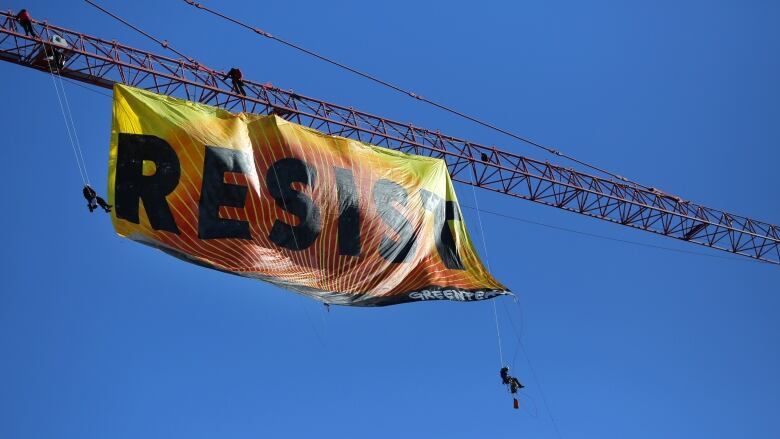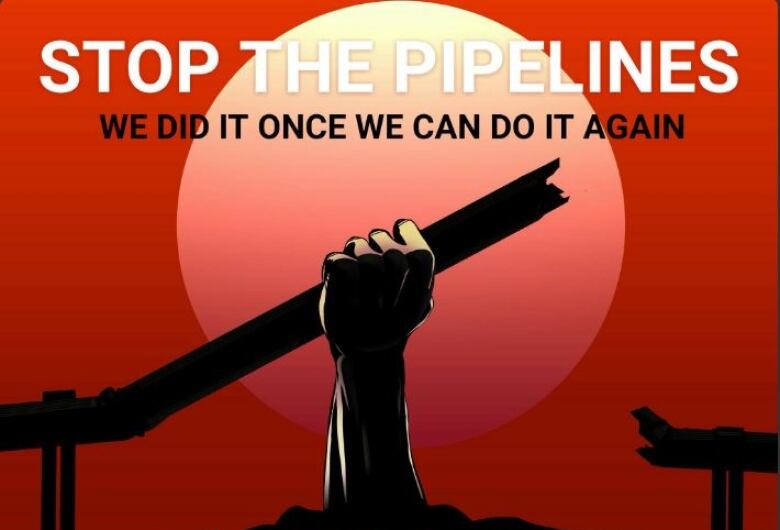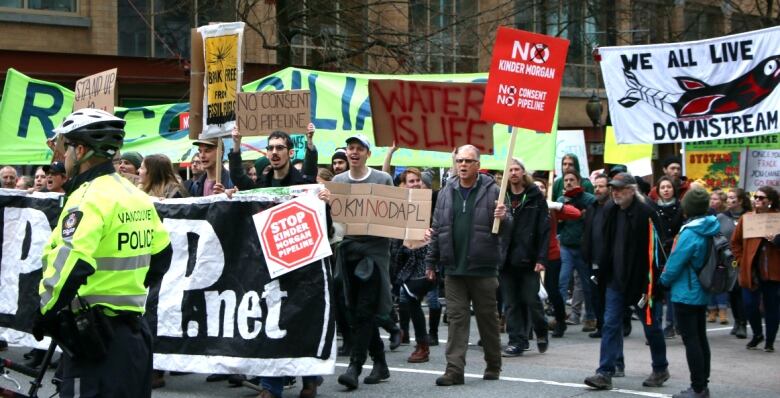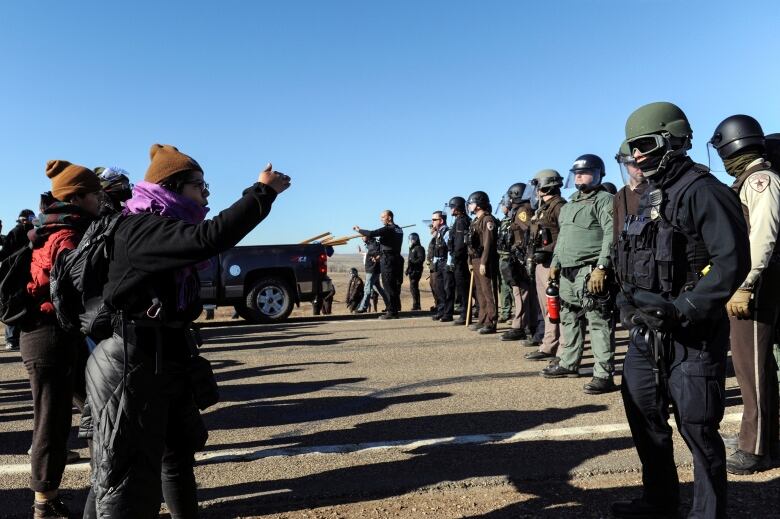Will pipeline protests get lost amid the noise of the Trump era?
There is a lot to protest in the United States right now. Are pipelines important enough to make the cut?

There is a lot to protest in the United States right now.
In the days since the inauguration of U.S. President Trump,millions of Americans bundled up and hit the streets.The Women's March was thoughtto be the largest protest in U.S. history. There were demonstrations against the Mexican border wall, againstTrump's broader immigration policies and, yesterday, against the ban on arrivals from sevenMuslim countries.

It's unlikely that pipeline protests will stop, but in the Trump era,they might not get as much attention.
When Jane Fonda travelled to the Alberta oilsands earlier this month, her visit was covered widely in the Canadian media and provoked the usual backlash among some Albertans. But outside an Associated Press story, barely merited a mention in U.S. newspapers.
- A chronological history of controversial Keystone XL pipeline project
- Celebrities in the oilsands: The visits continue but do they have an impact?
That may be because Fonda visited Alberta and held her press conference the same day that Donald Trump help his first news conference as president-elect. For the media, there were bigger fish to fry.
Protests need political opportunity
To create a social movement you needa grievance, resources, a collective identity and a political opportunity. President Obama was that opportunity for the anti-pipeline crowd. He was looking to establish a legacy of action on climate change and his rejection of Keystone served that purpose.
President Trump is looking to establish the opposite legacy, by expanding the energy industry as rapidly as possible. But that could also present an opportunity.
"Having a clear opponent in the White House gives you someone to organize around and a sense of direction and focus," said Dominique Clment, a sociology professor at the University of Alberta who studies social movements.
- Trump's 1st week reshapes U.S. relationship with Canada
- The prime minister, the pipeline, and the lucky bounce in Calgary
The day after Keystone XL was revived, Greenpeaceactivists climbed a cranebehindthe White House, and hoisted a banner that said "Resist,"hooking theirenvironmentalcauses to the dissent against Trump.
"You're seeing Trump attack so many different communitiesat the same time, there is the chance of divisiveness, as everybody is trying to protecttheirownrights, but what I am seeing is that people are coming together to support each other " said Mike Hudema, a campaigner for Greenpeace in Alberta and one of the people who brought Fonda to the province earlier this month.

In Canada, Trans Mountain moves ahead
In Canada, two export pipeline projects also have federal approval. The most contentious of those, the Trans Mountain pipeline expansion, is moving closer to construction, as Kinder Morgan works to satisfy the 157 conditions placed upon the project by the National Energy Board. Once it has done so, it will apply to the NEB for permission to begin to lay the pipe, something that is expected to happen this year.
Here in Canada we have fewer Trump distractions. The fight against Kinder Morgan is well underway, already multiple lawsuits have been filed against the project with more expected.
- Keystone XL could be Canada's last big oil export pipeline
- Along Trans Mountain pipeline, opinions range from pro to protest

Civil disobedience or unlawful obstruction?
One person's civil disobedience is another's unlawful obstruction. In the days after Trans Mountain was approved, Natural Resources Minister Jim Carr mused about using the police or defence forces to prevent violence during construction. He said those words werenot intended as a warningto protestors.
Dakota Access may be the pipeline to set the tone. It is likely tomove toward construction more quickly than Trans Mountain or Keystone XL, depending on whether the Army Corplistens to Donald Trump and speeds up its consideration of the pipeline's routeunder Lake Oahe.
- Kinder Morgan braces for Standing Rock-type protests
- Officers in riot gear arrest 28 in violent clashes with North Dakota pipeline protesters
That will be the test of how the new federal administration reacts to direct action.
DennisMcConaghy, a former executive at TransCanada and the author of Dysfunction: Canada after Keystone XL, saidhe hopes after the due process, includinglegal challenges, hasplayed out, protestors will accept the results.
"Weknow what the new federal administration and the North Dakota authorities are likely to do," he said. "They're going to enforce the law."
Dominique Clementthinks even if the protestors aren't able to stop pipelines, that doesn'tmean they failed. "The truth is that the vast majority of protesthas to do with changing the way that other people see the world around us. It may pay dividends in four years, they're playing the long game."












_(720p).jpg)


 OFFICIAL HD MUSIC VIDEO.jpg)
.jpg)



























































































